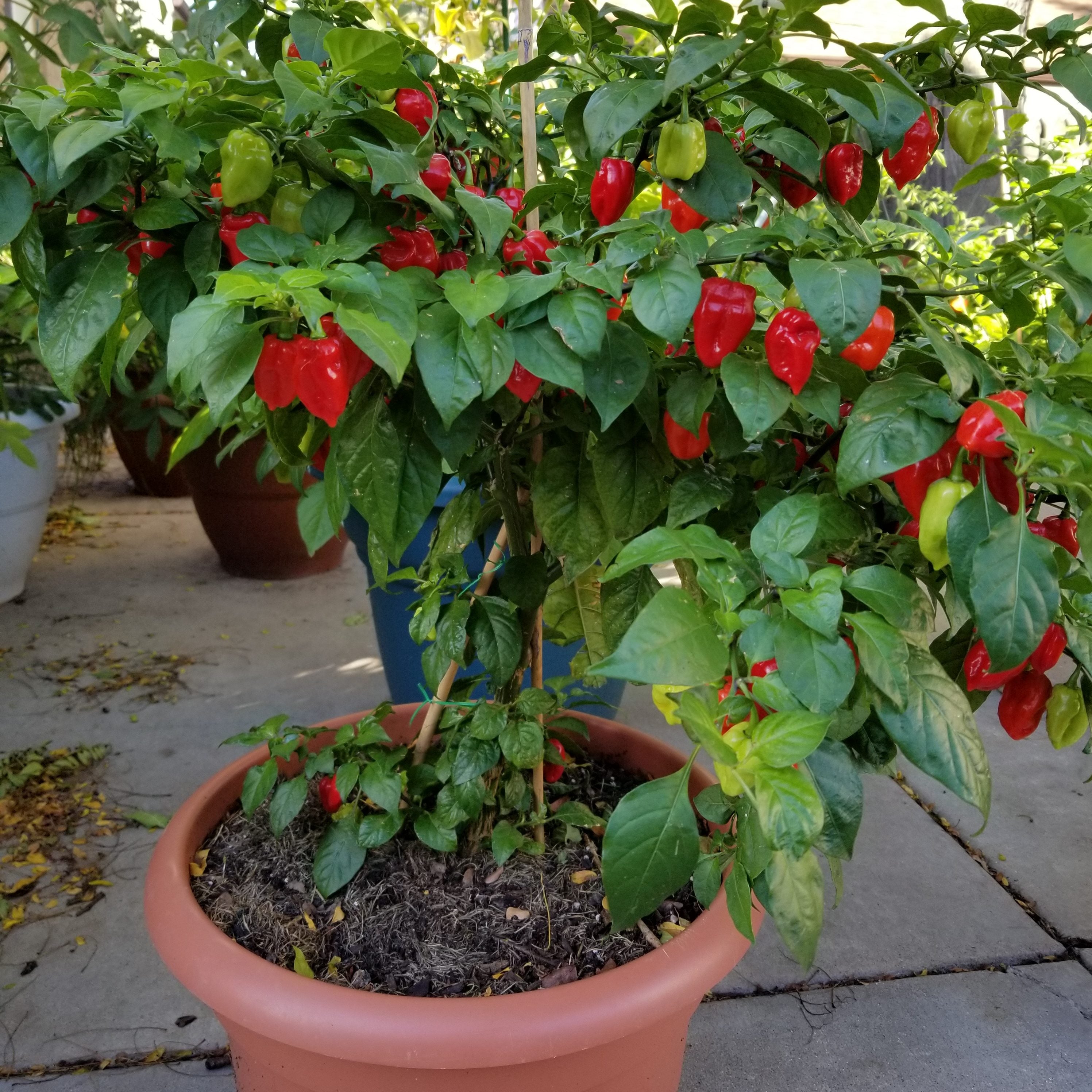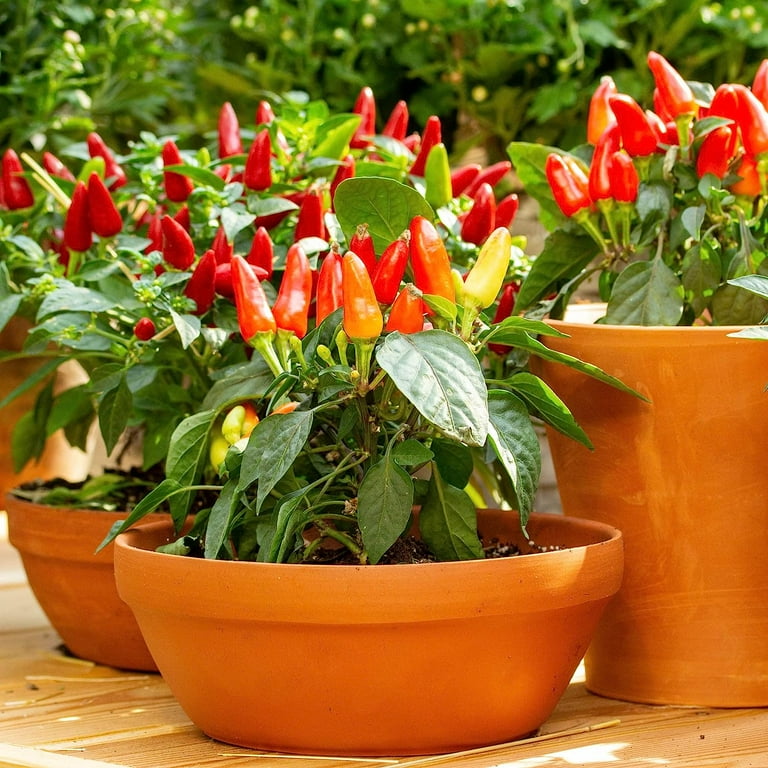Organic Vs. Synthetic Fertilizers: Which Is Best for Nurturing Healthy Pepper Plants?
In the realm of supporting healthy and balanced pepper plants, the selection in between synthetic and natural plant foods stands as an essential choice with far-reaching implications. While both alternatives goal to offer important nutrients to sustain plant development, the nuances of their effect on the dirt, plant health and wellness, and the environment spark a discussion that echoes throughout the horticulture neighborhood. Comprehending the distinct benefits and prospective pitfalls of each plant food kind is important for pepper growers looking for to enhance their yields while maintaining a lasting and eco-conscious strategy.
Advantages of Organic Fertilizers
Organic plant foods provide an environmentally-friendly and lasting method to beneficial pepper plants, offering essential nutrients without using synthetic chemicals. These all-natural fertilizers are stemmed from natural sources such as garden compost, manure, bone meal, and algae, advertising soil wellness and biodiversity. Unlike artificial plant foods, organic alternatives release nutrients gradually, guaranteeing a steady and well balanced supply for pepper plants to flourish.
One substantial benefit of natural fertilizers is their capacity to improve soil structure and water retention. By improving dirt health, organic plant foods promote useful microbial task, which aids in nutrient uptake by pepper plants. Furthermore, natural fertilizers minimize the risk of chemical run-off, safeguarding water resources from air pollution and protecting the setting.
Additionally, organic plant foods add to long-term soil fertility by advertising the development of useful dirt microorganisms. These organisms assist damage down raw material, releasing nutrients in a kind that is easily accessible to pepper plants. best fertilizers for peppers. By promoting a healthy and balanced soil ecosystem, organic fertilizers support sustainable pepper farming methods that benefit both plants and the environment
Downsides of Synthetic Plant Foods
Synthetic fertilizers, in comparison to their natural counterparts, pose numerous downsides when used to nourish pepper plants, affecting both plant health and wellness and environmental sustainability. One significant disadvantage of synthetic plant foods is their tendency to seep nutrients from the dirt rapidly.
Furthermore, the overuse of artificial plant foods can add to water pollution. Excess plant foods not absorbed by plants can clean away into water bodies, resulting in eutrophication, where algae blossoms diminish oxygen degrees in the water, harming marine life. Moreover, synthetic plant foods are usually stemmed from non-renewable sources, such as fossil fuels, adding to carbon emissions and ecological deterioration throughout their manufacturing.
Nutrient Absorption Contrast
Effective nutrient absorption plays a critical role in the total health and growth of pepper plants. When contrasting artificial and natural fertilizers in terms of nutrient absorption, natural fertilizers have the advantage of giving a more well balanced and slow-release resource of nutrients (best fertilizers for peppers). Organic fertilizers consist of a selection of macro and micronutrients that are not just valuable for the plants but likewise advertise healthy soil microbial activity, which helps in nutrient uptake. On the various other hand, synthetic fertilizers commonly provide a quick release of nutrients, which can cause seeping and drainage, resulting article in lower nutrient absorption rates by the plants.
Furthermore, natural plant foods enhance soil structure and water retention capacity, allowing pepper plants to access nutrients much more effectively. This enhanced soil quality helps with root growth, enabling better nutrient absorption. Artificial plant foods, although originally improving plant development because of their high nutrient concentrations, may hinder long-term nutrient absorption by derogatory soil health and wellness gradually.
Environmental Impact Considerations

On the various other hand, artificial plant foods, although typically more quickly offered and concentrated to plants, can have damaging impacts on the atmosphere otherwise used correctly (best fertilizers for peppers). Their production needs high energy inputs, causing greenhouse gas discharges and adding to climate modification. Additionally, the runoff of excess synthetic fertilizers can infect water resources, causing eutrophication and hurting water environments.
Ideal Plant Food Practices for Peppers
When fertilizing my company pepper plants, maximizing nutrient uptake and lessening ecological impact are essential considerations. To accomplish this, it is important to adhere to ideal plant food methods tailored to the certain demands of pepper plants. One important technique is to perform a dirt examination prior to using any type of fertilizers. This test can figure out the pH degree of the soil and recognize any kind of nutrient shortages, leading you in picking one of the most suitable fertilizer formulation.
One more important practice is to feed pepper plants at the correct time. Typically, peppers benefit from getting fertilizer at planting and afterwards again when they begin to flower. Over-fertilizing can lead to vitamins and mineral inequalities and harm the plants, so it is important to follow advised application prices.
Furthermore, picking a balanced over here plant food with an NPK proportion that suits pepper plants' requirements is essential. Eventually, combining synthetic and organic fertilizers carefully can assist support healthy pepper plants while minimizing ecological effect.
Final Thought

Organic fertilizers use a sustainable and environmentally-friendly approach to nourishing pepper plants, offering essential nutrients without the use of synthetic chemicals. Unlike synthetic plant foods, natural alternatives release nutrients gradually, making sure a steady and well balanced supply for pepper plants to grow.
Synthetic plant foods, in comparison to their natural equivalents, pose different downsides when used to nourish pepper plants, impacting both plant health and environmental sustainability. When comparing natural and artificial fertilizers in terms of nutrient absorption, natural plant foods have the benefit of providing a much more well balanced and slow-release source of nutrients.Moreover, organic fertilizers enhance dirt structure and water retention capability, allowing pepper plants to accessibility nutrients a lot more efficiently.